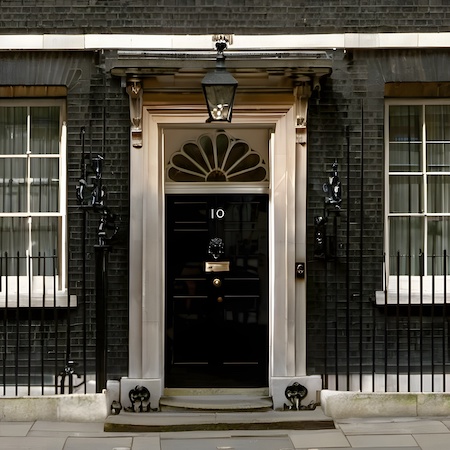The Prime Minister, Sir Keir Starmer, will today (September 12) outline “the biggest reimagining” of the NHS since it was founded in 1948, following the publication of Lord Darzi’s independent investigation into the state of the health service.
The Health Secretary, Wes Streeting commissioned this review, in which Lord Darzi examined over 600 pieces of analysis from the Department of Health and Social Care (DHSC), NHS England and external organisations. His report will inform the Government’s 10-year plan to reform the health service.
Lord Darzi, who is an independent peer and practising surgeon with 30 years’ experience in the NHS, says he has been “shocked” by what he has found during his investigation, about the health service itself and the state of the nation’s health.
“We want to deliver high quality care for all, but far too many people are waiting for too long, and in too many clinical areas quality of care has gone backwards.”
In his report, Lord Darzi cites falling productivity even though NHS staff are working harder than ever. “We get caught up frantically trying to find beds that have been axed or using IT that is outdated or trying to work out how to get things done because operational processes are overwhelmed. It sucks the joy from our work – we became clinicians to help patients get better, not to go into battle with a broken system.”
The report is also highly critical of the austerity of the 2010s which was responsible for a decade of under-investment, as well as the long-term impact of the 2012 Health and Social Care Act – described as “a calamity without international precedent” which “proved disastrous.”
As well as setting out the failings in the system that have led to the current “critical condition” of the NHS, the PM will highlight the link between health and the economy, pointing out that there are 2.8 million people economically inactive due to long-term sickness, and more than half of those on the current waiting lists for inpatient treatment are working age adults. Getting people back to health and work will therefore reduce the costs on the NHS and drive the much-needed economic growth to fund public services.
The condition of the estate is expected to be summed up as: “Crumbling buildings, decrepit portacabins, mental health patients accommodated in Victorian-era cells infested with vermin.”
The PM will promise long-term reform and significant change: “Major surgery not sticking plaster solutions.” Describing the NHS as being at a fork in the road, he will outline a stark choice about how the rising demands on the health service could be met. It’s a choice between higher taxes on working people to meet the ever-higher costs of aging population - or reform to secure its future. “We know working people can’t afford to pay more, so it’s reform or die.”
Three big shifts
In carrying out the review, Lord Darzi brought more than 70 organisations together in an Expert Reference Group and sought input from NHS staff and patients through focus groups and frontline visits. This input is reflected in the report.
“Instead of the top-down approach of the past, this plan is going to have the fingerprints of NHS staff and patients all over it,” Sir Kier Starmer will promise, as he outlines the three big shifts that will frame the 10-year plan.
1. Moving from an analogue to a digital NHS to create “A tomorrow service not just a today service.”
2. Shifting more care from hospitals to communities.
3. Being much bolder in moving from sickness to prevention.
Responding to the report, the Secretary of State Wes Streeting says: “I asked Lord Darzi to tell hard truths about the state of the NHS. He has produced an honest, expert, comprehensive report on the appalling state our health service is in.
“The damage done to the NHS has been more than a decade in the making. We clearly have a long road ahead. But while the NHS is broken, it’s not beaten. We will turn the NHS around so it is there for you when you need it, once again.”
Today’s report has been welcomed by NHS England and health organisations who have pledged to work closely with the Government on its mission to rebuild the NHS.
Amanda Pritchard, NHS England Chief Executive, says: “As this report sets out, staff are the beating heart of the NHS with a shared passion and determination for making the NHS better for patients - but it is also clear they are facing unprecedented challenges.
“Our staff are treating record numbers of patients every day despite ageing equipment and crumbling buildings, a surge in multiple long-term illnesses, and managing the long-lasting effects of the pandemic.
“While teams are working hard to get services back on track, it is clear waiting times across many services are unacceptable and we need to address the underlying issues outlined in Lord Darzi’s report so we can deliver the care we all want for patients.
“As Lord Darzi rightly points out, many of the solutions can be found in parts of the NHS today. That is why we are fully committed to working with government to create a 10-year plan for healthcare to ensure the NHS recovers from Covid, strengthens its foundations and continues to reform so it is fit for future generations.”
Key findings include:
• Deterioration: The health of the nation has deteriorated over the past 15 years, with a substantial increase in the number of people living with multiple long-term conditions.
• Spending: Too great a share of the NHS budget is being spent in hospitals, too little in the community, and productivity is too low.
• Waiting times: Waiting lists have swelled and waiting times have surged, with A&E queues more than doubling from an average of just under 40 people on a typical evening in April 2009 to over 100 in April 2024. 1 in 10 patients are now waiting for 12 hours or more.
• Cancer care: The UK has appreciably higher cancer mortality rates than other countries, with no progress whatsoever made in diagnosing cancer at stage one and two between 2013 and 2021.
• Lasting damage: The Health and Social Care Act of 2012 did lasting damage to the management capacity and capability of the NHS. It took 10 years to return to a sensible structure, and the effects continue to be felt to this day.
• Productivity: Too many resources have been being poured into hospitals where productivity had substantially fallen, while too little has been spent in the community.











